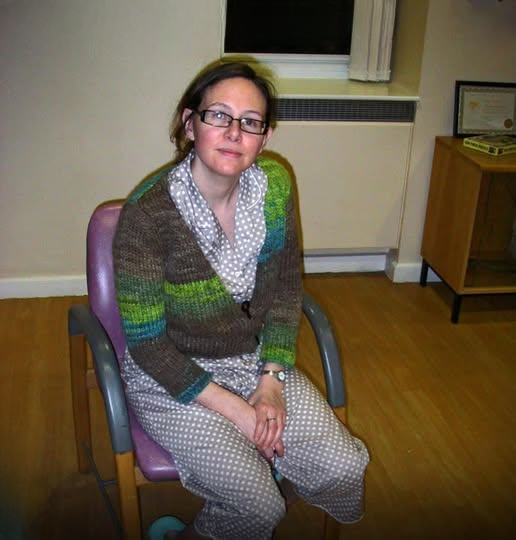After 23 years of marriage, Mary just wanted to spend an evening out with her husband, Jack. But when he refused, confessing that he felt ashamed of her, she never expected the lesson that lay ahead.
Jack and Mary had shared over two decades together, raising four children. Their life had settled into a dull routine, and the excitement between them had faded.
Jack would come home from work, flop on the couch, and turn on the TV. Meanwhile, Mary’s day was endless—cooking, cleaning, helping with homework, doing laundry, and putting their youngest child to bed, only stopping when exhaustion took over.
Late at night, when the house was quiet, Mary would watch romantic movies and imagine herself in the stories, longing to feel special and loved again.
One evening, looking in the mirror, she barely recognized herself. The lively young woman from her wedding photos was gone, replaced by someone tired, drained, and invisible. But she refused to accept that as her reality.
The next day, Mary prepared the dinner table with extra care. At dinner, she summoned her courage.
“Jack,” she said softly, “maybe we could go on a date. There’s a new restaurant downtown. It would be nice to spend some time together.”
Jack laughed derisively. “A date? Why? It’s not a special occasion.”
Mary’s smile faltered. “Do we need one? We used to go out just because we wanted to.”
Instead of understanding, Jack grew annoyed.
“Look at you! Why would I want to take you out? You look terrible.”
Mary’s heart ached. “I just finished cleaning the house, that’s why I look like this.”
Jack shook his head, indifferent. “No, you look like that every day. You used to care about how you looked—doing your hair, dressing well—but now? You look like an old maid. I don’t even know when you stopped trying.”
Tears stung Mary’s eyes, but Jack remained cold.
“To be honest, I’m embarrassed by you,” he said. “I can’t go out with you like this.”
Without another word, he grabbed his jacket and left.
Jack went to his best friend Samuel’s house, hoping for a night out. But Sam refused.
“Sorry, buddy. I have a date with my wife.”
Jack frowned. “A date? On a random night?”
Before Sam could reply, his wife appeared upstairs, radiant in a beautiful dress with perfectly styled hair, holding fresh flowers.
“Sam, I just found these in our bedroom!” she said, kissing him on the cheek.
Sam smiled and pulled a gift bag from behind the door. His wife gasped.
“Sam, this is beautiful! I’ll wear this tonight!” she exclaimed, rushing to change.
Jack watched, stunned.
“Your wife looks amazing,” he muttered. “And happy. Mine barely smiles anymore.”
Sam’s face grew serious. “When was the last time you took Mary out on a date?”
Jack hesitated. “I don’t know. Two years ago? Maybe longer.”
Sam shook his head, disappointed. “And you wonder why she doesn’t smile?”
He patted Jack on the shoulder.
“You know, I don’t take my wife out just for special occasions. I choose to make every day special. She’s the light of our home. She deserves to feel appreciated. And when a woman feels loved…”
Jack stayed silent.
“She shines.”
Jack left without another word. When he returned home, Mary was curled up on the couch, her face swollen from crying.
Feeling ashamed, Jack quietly placed a small gift box on the table.
Mary looked up, surprised.
“Sorry,” Jack said softly. “I hurt you today. That was cruel, and you didn’t deserve it.”
Mary hesitated, then glanced at the box.
“Would you go out with me tomorrow night?” Jack asked. “I made a reservation at that new place downtown.”
Her eyes widened. Slowly, she opened the box to find a delicate silver necklace.
Tears filled her eyes—but this time, they weren’t tears of pain.
“It’s beautiful,” she whispered. “Thank you, Jack.”
Her lips curved into a gentle, genuine smile—the smile he hadn’t seen in years.
At that moment, Jack realized how much he missed it.
The next evening, when Mary came out of her room, Jack was breathless.
She looked stunning—not just because of the dress or styled hair, but because of the sparkle in her eyes—the same sparkle she used to have when she looked at him.
Suddenly, Jack felt foolish.
For years, he had taken Mary for granted, letting her bear the household burdens while he relaxed on the couch. He had watched her fade without asking if he was part of the reason.
But no longer.
That night marked a change.
From then on, Jack promised to keep their love alive, remembering his friend’s words: you don’t need a special occasion to celebrate love—you simply choose to make every day special.
And Jack wouldn’t wait anymore.
That dinner was only the start of a new chapter. Over time, Jack learned that the real issue wasn’t a lack of special moments, but a lack of attention and appreciation.
He began to change—not just in actions but in words—praising Mary more, listening closely, and treating her with the admiration and affection he felt when they first met.
Mary felt renewed, gaining confidence and self-worth. She smiled more, took better care of herself, and most importantly, loved again. She knew their marriage could be rebuilt.
Through small gestures, dates, and heartfelt conversations, they rediscovered each other. They understood they didn’t need grand acts or perfection—just commitment and mutual effort to nurture their love every day.
In time, Jack and Mary found a balanced life full of laughter, support, and love.
Their love, once fading, was revived by simple, sincere moments.
And after all those years, Jack and Mary rediscovered what it truly means to be husband and wife—and how sometimes love isn’t lost, just waiting to be found again.
